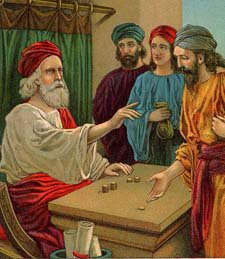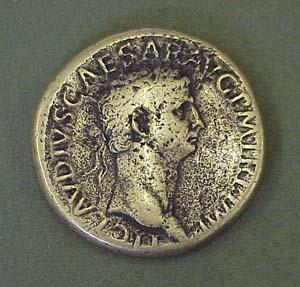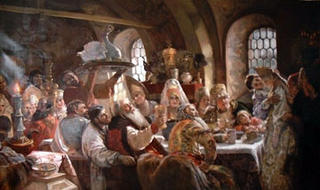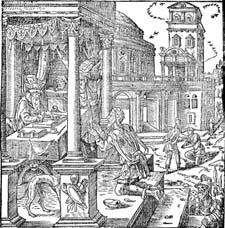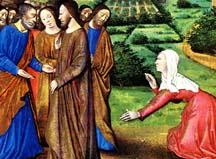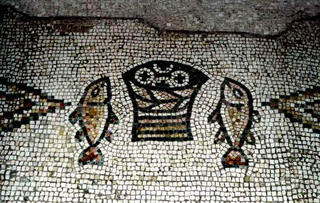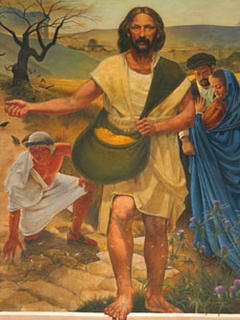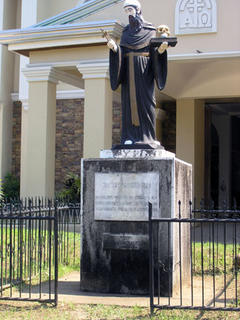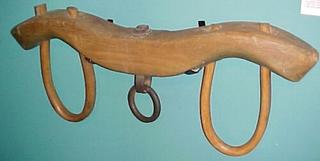BE WATCHFUL! BE ALERT! (Mk 13:33-37)

Happy New Year!
Yes, it's only November 27. And yes, it's also new year. The First Sunday of Advent marks the beginning of the Liturgical Year in the Catholic Church.
Liturgical Year
The two high points of the Liturgical Year is Christmas (Birth of the Redeemer) and Easter (Resurrection of the Savior). They are so important that the are preceded by a period of preparation and followed by a period of continuing celebration.
Christmas is preceded by Advent and followed by the Christmas season. Easter is preceded by Lent and followed by the Easter Season..
Violet
The color for Advent and Lent is violet. However, the spirit of lent is penitential while that of Advent is joyful.
Gloria
During Advent and Lent, the Gloria (Glory to God in the Highest) is neither sung nor recited. The Gloria is reserved for Christmas when the angels sang it for the first time. However, in the Philippines it is sung during the Simbang Gabi and the Misa de Gallo.
Meaning
Advent means coming. From the first Sunday of Advent till Dec. 16, we are reminded of the Parousia (the second coming of Jesus at the end of time). From Dec. 17 onwards, the focus is the first coming of Jesus when he was born in Bethlehem.
The Advent Wreath
The liturgical symbol for advent is the advent wreath. It serves to focus our attention on the preparation for Christmas.
The wreath (circle) reminds us of eternity. No beginning. No end. God is eternal. His love for us is eternal. Someday we shall join God in eternity.
Green is the color of life. God wants life for us and not death. That is why he sent is only Son that those who believe in him may not perish but have everlasting life.
Candles. Christ is the light of the world. There are four candles representing the four Sundays of Advent. Three candles are violet. One candle is pink which stands for the Laetare Sunday, or Sunday of Joy (third Sunday of Advent).
THIS YEAR WILL CHRISTMAS BE A SEASON OF JOY?
When they say that it will be a gloomy Christmas, what they mean is that we shall not be able to buy more Christmas decorations. There will less food at noche buena. No new clothes. Cheap gifts.
But Christmas is not about food. It is not about clothes nor decorations nor gifts.
Christmas is about Christ.
For this reason, there is no reason for this season not to be a joyful one. And precisely because of this, I prefer the greeting "Happy Christmas" to "Merry Christmas".

